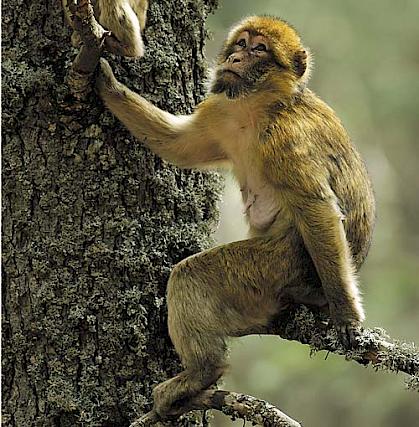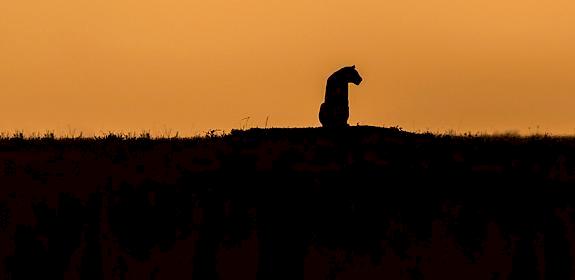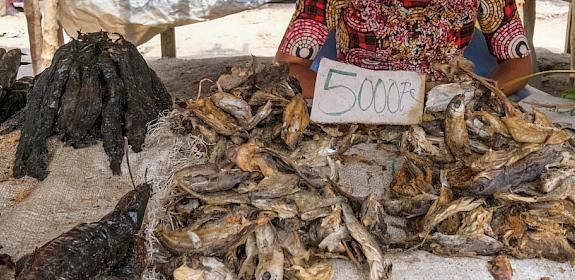Monkey business threatens macaques
Cambridge, UK, 1st May 2008—The Barbary Macaque Macaca sylvanus is declining because of habitat loss and demand for the illegal pet trade, according to a paper published in the latest issue of the TRAFFIC Bulletin, the only scientific journal to focus on wildlife trade issues.

The illegal macaque trade became apparent in the late 1990s, after zoological parks and sanctuaries in Europe noticed a significant increase in numbers of Barbary Macaques offered to zoos by ex-owners or seized by law enforcement authorities, mainly in France, Belgium, Spain, Germany and the Netherlands. The trade in Barbary Macaques is illegal in Morocco without a permit, although the laws are poorly enforced. The EU has suspended imports of wild macaques since 2000.
In France, the police seize roughly 50 animals a year, whilst one zoo was offered around 160 macaques between 2003 and 2004.
The latest study, carried out between 2003–2007 by Els van Lavieren from the IUCN Committee of the Netherlands, found that most macaques were probably wild caught as many ex-owners—principally European Moroccans—said they had purchased their pets whilst on holiday in Morocco. However, after smuggling them home, many owners soon found that caring for a captive primate was more dangerous and difficult than expected.
In France, zoos and rescue centres report macaque numbers offered to them have significantly increased in the last four years, whilst there are reports of macaques being used as fighting monkeys in tower block basements and as guard dog substitutes.
Vendors in Morocco claimed it was relatively easy to smuggle animals into Europe by paying a Customs officer a bribe of around EUR20–50 per monkey. Customs were said to be reluctant to seize animals they had nowhere to house. Animals are also sedated and smuggled by lorry into Europe, or forged vaccination and export documents are purchased.
In some parts of Morocco, macaque numbers have declined by up to 84% in the wild. The latest study estimated roughly 300 young macaques are taken per year for trade into Europe—up to one-and-a-half times the sustainable annual offtake. Given the fragmented nature of many macaque populations, the risk of local extinction is high. This can have a knock-on environmental effect as primates often have a role in seed dispersal, which in the long-term will affect forest composition.
Van Lavieren concludes that immediate action is required to stop the poaching of Barbary Macaque infants, to prevent this species disappearing from the wild.
To read the full paper, The Illegal Trade in Barbary Macaques from Morocco and its Impact on the Wild Population, plus many more interesting items about the international wildlife trade, download the latest TRAFFIC Bulletin (PDF, 1.2 MB).



